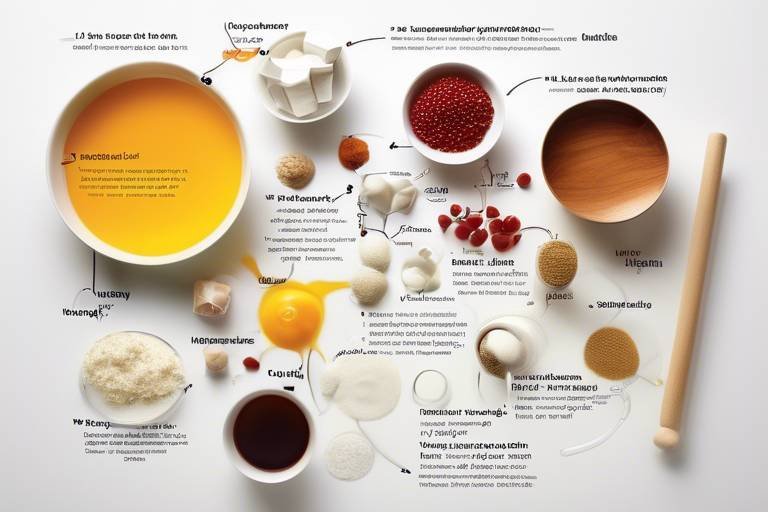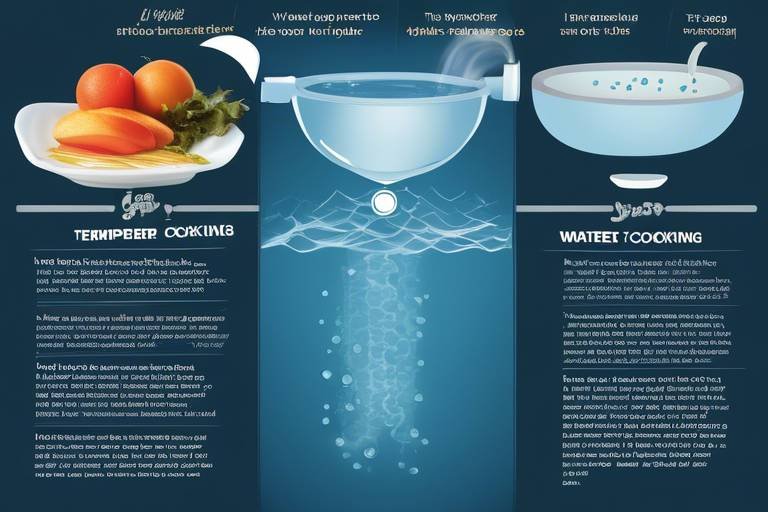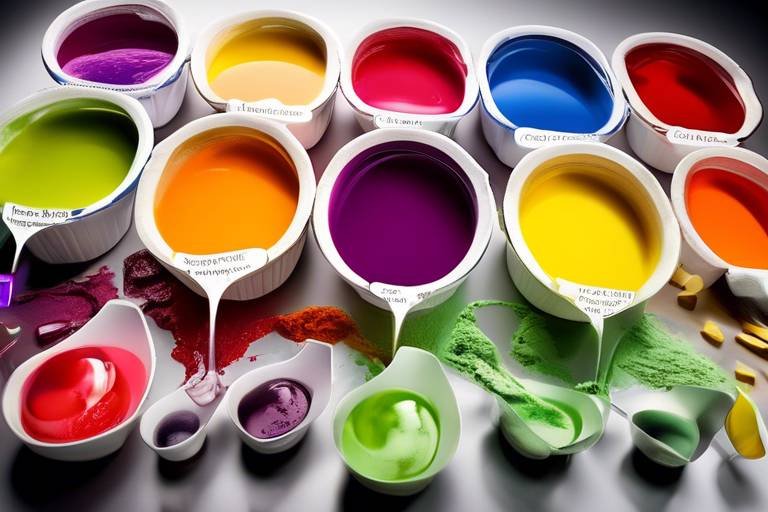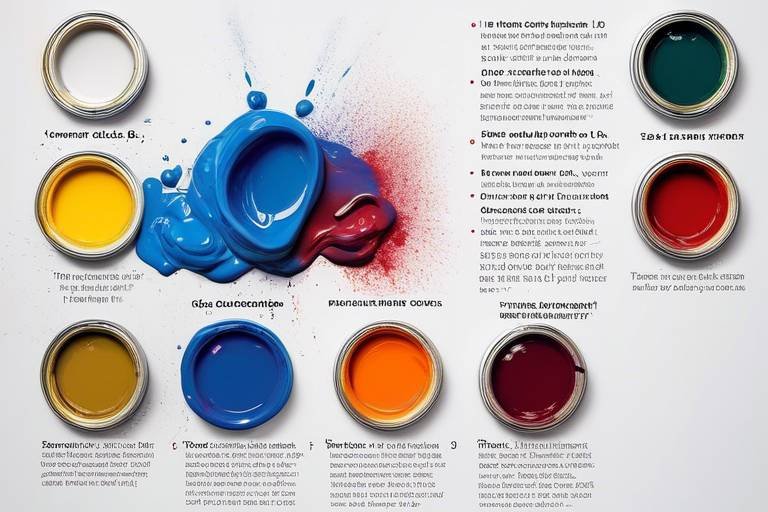The Chemistry of Scent - How Fragrances Affect Mood
Have you ever walked into a room and instantly felt a wave of calm wash over you, or perhaps a sudden burst of energy? This isn't just a coincidence; it's the intricate relationship between scent and mood that plays a significant role in our emotional landscape. Fragrances have the power to evoke memories, alter perceptions, and even influence our overall well-being in profound ways. From the sweet smell of vanilla that brings back childhood memories to the invigorating scent of citrus that can uplift your spirits, the chemistry behind these fragrances is a fascinating blend of science and art.
At the heart of this phenomenon lies the olfactory system, which is responsible for detecting and processing smells. When we inhale a fragrance, tiny molecules travel through the air and bind to our olfactory receptors, sending signals to the brain. This process is so powerful that certain scents can trigger emotional responses even before we consciously recognize them. For instance, the smell of freshly baked bread might remind you of family gatherings, sparking feelings of nostalgia and warmth. It's like a time machine for your emotions!
Moreover, research has shown that different scents can activate various areas of the brain associated with emotion and memory. For example, the chemical compounds in lavender are known to promote relaxation and reduce anxiety, while peppermint can enhance alertness and focus. This means that the right fragrance can be a valuable tool in managing our moods and emotional states. Just think of it as a little boost from nature, designed to help us navigate the ups and downs of life.
In summary, the chemistry of scent is a remarkable interplay of biology and psychology. By understanding how fragrances affect our mood, we can harness their power to create environments that uplift, soothe, or invigorate us. Whether it's through essential oils, scented candles, or even our favorite perfumes, the scents we choose can significantly impact our emotional well-being. So next time you reach for a fragrance, remember that you're not just indulging your senses; you're also engaging in a complex dance of chemistry that can enhance your mood and enrich your life.
Understanding the chemical composition of fragrances reveals how different molecules interact with our olfactory receptors, triggering specific emotional responses and influencing our mood in profound ways. Fragrances are composed of complex mixtures of volatile organic compounds (VOCs), which are responsible for their distinctive aromas. These compounds can be classified into several categories, including terpenes, esters, aldehydes, and alcohols, each contributing unique characteristics to a scent.
For instance, terpenes, found in many essential oils, are known for their uplifting properties. They can stimulate the brain's limbic system, which is closely linked to emotions and memory. On the other hand, esters often have fruity scents and can evoke feelings of happiness and joy. This intricate chemical dance is what makes scent such a powerful tool for emotional regulation.
Essential oils are natural extracts that not only carry distinct scents but also possess therapeutic properties. These oils are derived from various parts of plants, including leaves, flowers, and roots, and have been used for centuries in traditional medicine and holistic practices. The beauty of essential oils lies in their ability to elevate mood and promote relaxation or invigoration, depending on the oil used.
Aromatherapy utilizes essential oils to enhance physical and emotional well-being. With a rich history dating back to ancient civilizations, this practice has gained popularity in modern wellness culture. Specific scents, like chamomile and bergamot, are known for their calming effects, while others, like eucalyptus and rosemary, can invigorate and energize. The benefits of aromatherapy extend beyond mere fragrance; studies have shown that inhaling certain essential oils can reduce stress, anxiety, and even improve sleep quality.
Floral fragrances are often associated with positive emotions. Scents like rose and lavender can evoke feelings of happiness and calmness, enhancing our mood. The delicate aroma of jasmine, for example, is often linked to feelings of romance and tranquility, making it a popular choice for relaxation and stress relief. By surrounding ourselves with floral scents, we can create a serene environment that nurtures our emotional well-being.
Scent has a powerful link to memory recall. The olfactory bulb, responsible for processing smells, is located near the hippocampus, the brain's center for memory. This close proximity explains why certain fragrances can trigger vivid memories and emotional responses. For instance, the smell of a particular dish your grandmother used to make might transport you back to your childhood kitchen, filling you with warmth and nostalgia.
Cultural background plays a significant role in fragrance preferences. Different cultures perceive and utilize scents in unique ways, often associating certain aromas with specific emotions or rituals. For example, in many Eastern cultures, the scent of sandalwood is revered for its calming properties and is often used in meditation practices. In contrast, Western cultures may lean towards fresher, citrusy scents for their invigorating qualities.
Seasonal changes often bring shifts in fragrance preferences. As the weather warms up, people tend to gravitate towards lighter, more refreshing scents, while cooler months may see a rise in warmer, spicier fragrances. This connection between scent and season can affect mood significantly. For instance, the crisp smell of autumn leaves can evoke feelings of coziness and nostalgia, while the scent of blooming flowers in spring can inspire feelings of renewal and joy.
Creating a personalized fragrance experience can enhance mood and well-being. By selecting scents that resonate with your individual preferences and emotional needs, you can tailor your environment to support your emotional health. Experimenting with different fragrances can be a fun and rewarding journey, allowing you to discover what truly uplifts your spirit.
Advancements in fragrance technology are shaping how we experience scents. From innovative scent delivery systems to wearable fragrance devices, the future holds exciting possibilities for enhancing mood through scent. Imagine a world where you can customize your fragrance experience with the push of a button, allowing you to shift your mood effortlessly. This potential for innovation could revolutionize how we interact with fragrances, making them an even more integral part of our emotional well-being.
- How do scents affect our emotions? Scents can trigger emotional responses by activating areas of the brain associated with memory and feelings.
- What are some popular essential oils for mood enhancement? Some popular essential oils include lavender for relaxation, peppermint for energy, and bergamot for stress relief.
- Can fragrances improve mental health? Yes, certain fragrances can help reduce anxiety, improve mood, and even enhance cognitive function.
- Are there cultural differences in fragrance preferences? Absolutely! Different cultures have unique associations with scents and may prefer different fragrance profiles.
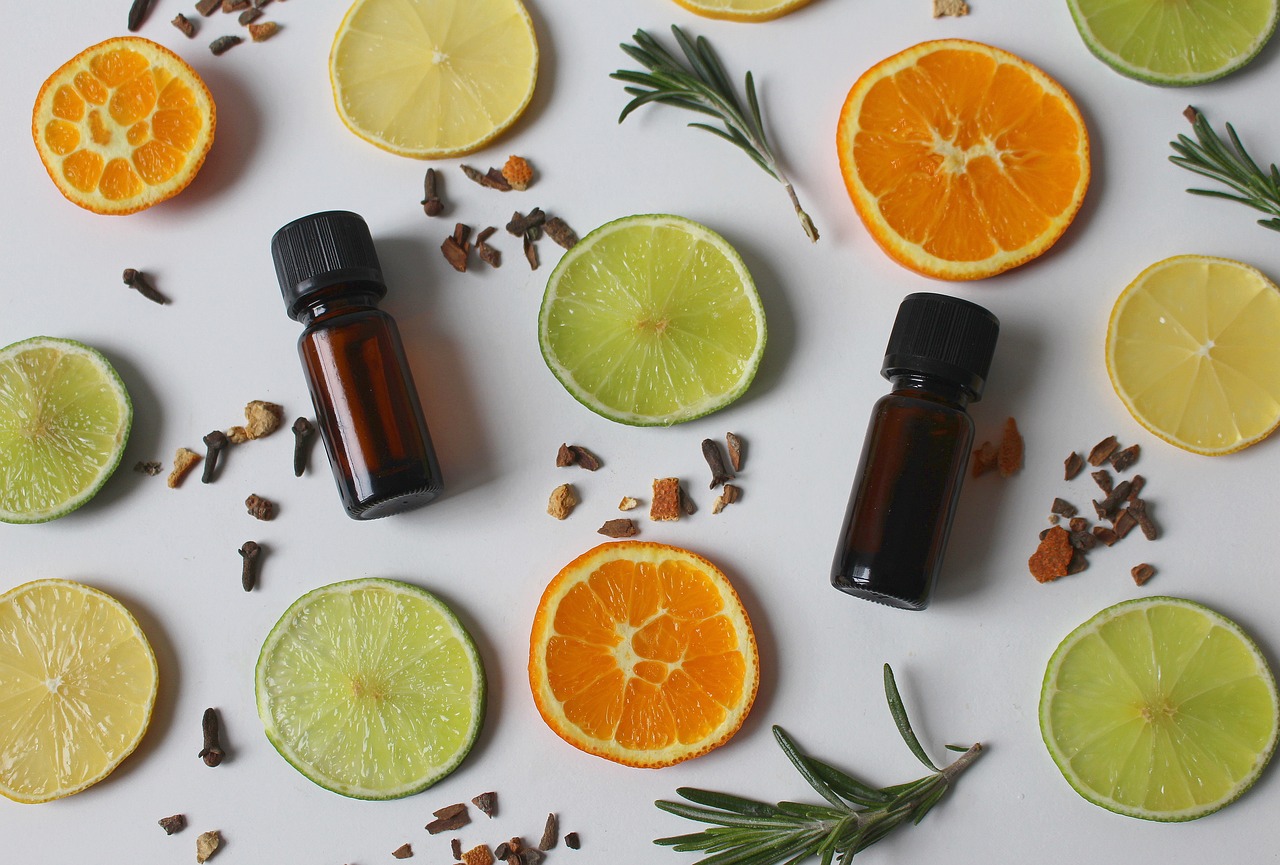
The Science Behind Fragrance
Have you ever caught a whiff of a certain scent and felt an immediate rush of emotions? Maybe it was the aroma of freshly baked cookies that took you back to your grandmother's kitchen, or the crisp smell of pine that reminded you of a winter holiday. This magical connection between scent and emotion is rooted in the chemistry of fragrance. Understanding how different molecules interact with our olfactory receptors can help us appreciate the profound impact scents have on our moods.
At the core of this fascinating relationship lies the olfactory system, which is responsible for our sense of smell. When we inhale, odor molecules enter our nasal cavity and bind to specific receptors. These receptors are like tiny locks, and the odor molecules are the keys that unlock various emotional responses in our brain. Interestingly, the olfactory bulbs are directly linked to the limbic system, the part of the brain that controls emotions and memory. This is why a simple scent can evoke such strong feelings and vivid memories.
To break it down further, fragrances are composed of different chemical compounds, which can be categorized into several groups based on their structure and properties. Here are some common types of fragrance compounds:
- Aldehydes: These compounds can create fresh, citrusy, or even soapy scents.
- Esters: Known for their fruity aromas, esters are often found in floral and fruity fragrances.
- Terpenes: These are responsible for the earthy and woody notes commonly found in nature.
- Phenols: Often associated with spicy or smoky scents, phenols can add depth to a fragrance.
Each of these compounds interacts with our olfactory receptors in unique ways, triggering different emotional responses. For instance, the scent of citrus is often associated with energy and positivity, while earthy scents can evoke feelings of calm and relaxation. This intricate dance of chemistry and emotion is what makes fragrances such a powerful tool for mood enhancement.
Moreover, the science of fragrance extends beyond just the chemical composition. The context in which we experience a scent can significantly influence our emotional response. For example, a floral fragrance might remind someone of a wedding, evoking feelings of joy and celebration, while the same scent could bring sadness to someone who associates it with a lost loved one. This interplay of personal experiences and chemical reactions showcases the complexity of our relationship with scent.
In conclusion, the science behind fragrance is a captivating blend of chemistry and psychology. By understanding how different fragrance compounds interact with our senses and emotions, we can harness the power of scent to enhance our mood and well-being. Whether it's through the invigorating scent of citrus or the calming aroma of lavender, fragrances have the potential to transform our emotional landscape in profound ways.

The Role of Essential Oils
Essential oils are more than just delightful fragrances wafting through the air; they are potent natural extracts that carry a multitude of therapeutic properties. Derived from various parts of plants, including leaves, flowers, and roots, these oils encapsulate the essence of their source, providing not only a pleasant scent but also a myriad of health benefits. Imagine walking through a lush lavender field or a vibrant citrus grove—these experiences can be bottled up in essential oils, ready to uplift your mood or calm your nerves.
One of the most fascinating aspects of essential oils is their ability to influence our emotions. For instance, the warm, comforting scent of vanilla can evoke feelings of nostalgia and safety, while the invigorating aroma of peppermint can enhance alertness and concentration. This emotional connection is not merely anecdotal; it is rooted in the science of how our brain processes scents. When we inhale these fragrant compounds, they interact with our olfactory receptors, sending signals to the brain that can trigger emotional responses.
Essential oils can be used in various ways to enhance well-being. Here are some common applications:
- Aromatherapy: This practice involves diffusing essential oils into the air to promote relaxation or energize a space.
- Topical application: When diluted with a carrier oil, essential oils can be applied directly to the skin for therapeutic effects.
- Bathing: Adding a few drops of essential oils to your bath can create a spa-like experience, helping to relax the body and mind.
Moreover, the versatility of essential oils allows individuals to tailor their use according to personal preferences and emotional needs. For example, someone feeling stressed might gravitate towards calming oils like lavender or chamomile, while another person looking for a boost might choose citrus oils like orange or lemon.
In summary, essential oils are a treasure trove of benefits that can dramatically influence our mood and well-being. They serve as a bridge between nature and our emotional states, reminding us of the profound connection we share with the world around us. As we continue to explore their potential, it becomes increasingly clear that these fragrant wonders are not just for pampering but are essential tools for enhancing our quality of life.
Q: What are essential oils?
A: Essential oils are concentrated plant extracts that capture the natural fragrance and therapeutic properties of the plant.
Q: How can I use essential oils?
A: Essential oils can be used in various ways, including aromatherapy, topical application, and adding to baths.
Q: Are essential oils safe for everyone?
A: While many people can use essential oils safely, some individuals may have allergies or sensitivities. It's important to do a patch test and consult with a healthcare provider if you have concerns.
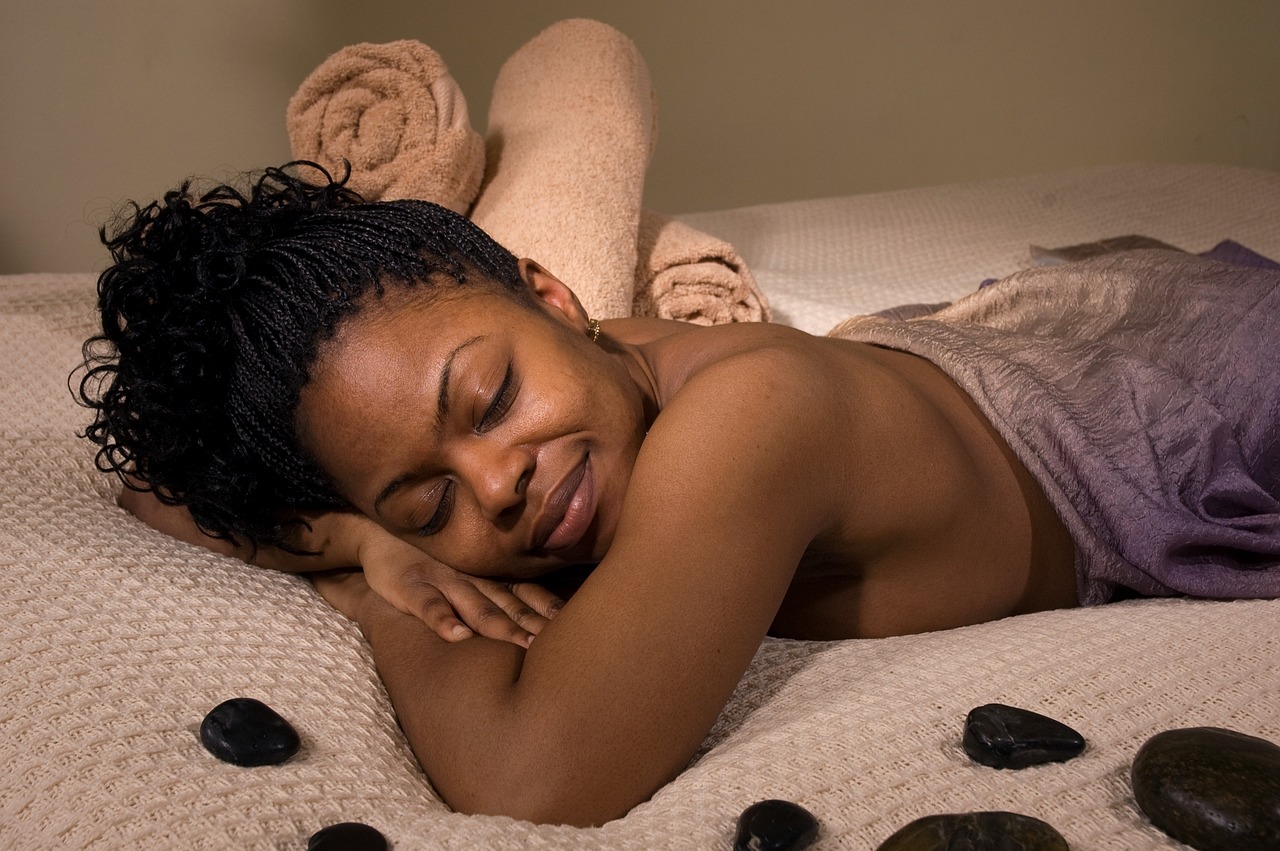
Aromatherapy is more than just a fancy term for using pleasant scents; it's a holistic practice that taps into the power of essential oils to enhance our physical and emotional well-being. Imagine walking into a room filled with the calming aroma of lavender or the refreshing scent of eucalyptus. Instantly, you feel a wave of relaxation wash over you, right? That’s the magic of aromatherapy at work! By harnessing the natural properties of essential oils, this practice can help elevate your mood, reduce stress, and promote overall health.
Essential oils are concentrated extracts from plants, each possessing unique therapeutic properties. For instance, while lavender is renowned for its calming effects, peppermint is invigorating and can help improve focus. The beauty of aromatherapy lies in its versatility; it can be tailored to meet individual needs. Whether you're looking to unwind after a long day or boost your energy levels for a workout, there's an essential oil that can help!
But how does it all work? When you inhale the scent of essential oils, the molecules travel through the olfactory system directly to the brain, particularly the limbic system, which is responsible for emotions and memory. This direct connection is why certain scents can evoke strong emotional responses or transport you back to a cherished memory. For example, the smell of freshly baked cookies might remind you of your grandmother's kitchen, instantly bringing warmth and nostalgia to your heart.
Incorporating aromatherapy into your daily routine can be as simple as diffusing essential oils in your home, adding a few drops to your bath, or using them in massage oils. Here are some popular essential oils and their benefits:
| Essential Oil | Benefits |
|---|---|
| Lavender | Reduces anxiety, promotes relaxation, and improves sleep quality. |
| Peppermint | Enhances focus, relieves headaches, and boosts energy levels. |
| Eucalyptus | Clears respiratory pathways, invigorates the senses, and reduces fatigue. |
| Tea Tree | Supports immune function, purifies the air, and has antibacterial properties. |
Additionally, aromatherapy has been linked to various health benefits, including:
- Improved sleep quality
- Reduced symptoms of depression and anxiety
- Enhanced cognitive function
- Relief from headaches and migraines
- Boosted immune system response
In conclusion, aromatherapy is a delightful and effective way to enhance your mood and well-being. By understanding the unique properties of different essential oils and how they affect our emotions, you can create a personalized aromatic experience that resonates with your individual needs. So why not give it a try? A little scent can go a long way in transforming your day!
Q: What is aromatherapy?
A: Aromatherapy is a holistic healing practice that uses essential oils extracted from plants to promote physical and emotional well-being.
Q: How do I use essential oils for aromatherapy?
A: Essential oils can be used in various ways, including diffusing them in the air, adding them to baths, or mixing them with carrier oils for massages.
Q: Are there any side effects to using essential oils?
A: While essential oils are generally safe, some individuals may experience allergic reactions or skin irritations. Always perform a patch test before topical application and consult a healthcare professional if you have concerns.
Q: Can aromatherapy help with anxiety?
A: Yes, many essential oils, such as lavender and chamomile, are known for their calming effects and can help reduce anxiety levels.
Q: How do I choose the right essential oil for my needs?
A: Consider what you're hoping to achieve—whether it's relaxation, focus, or energy—and select an essential oil that aligns with those goals.
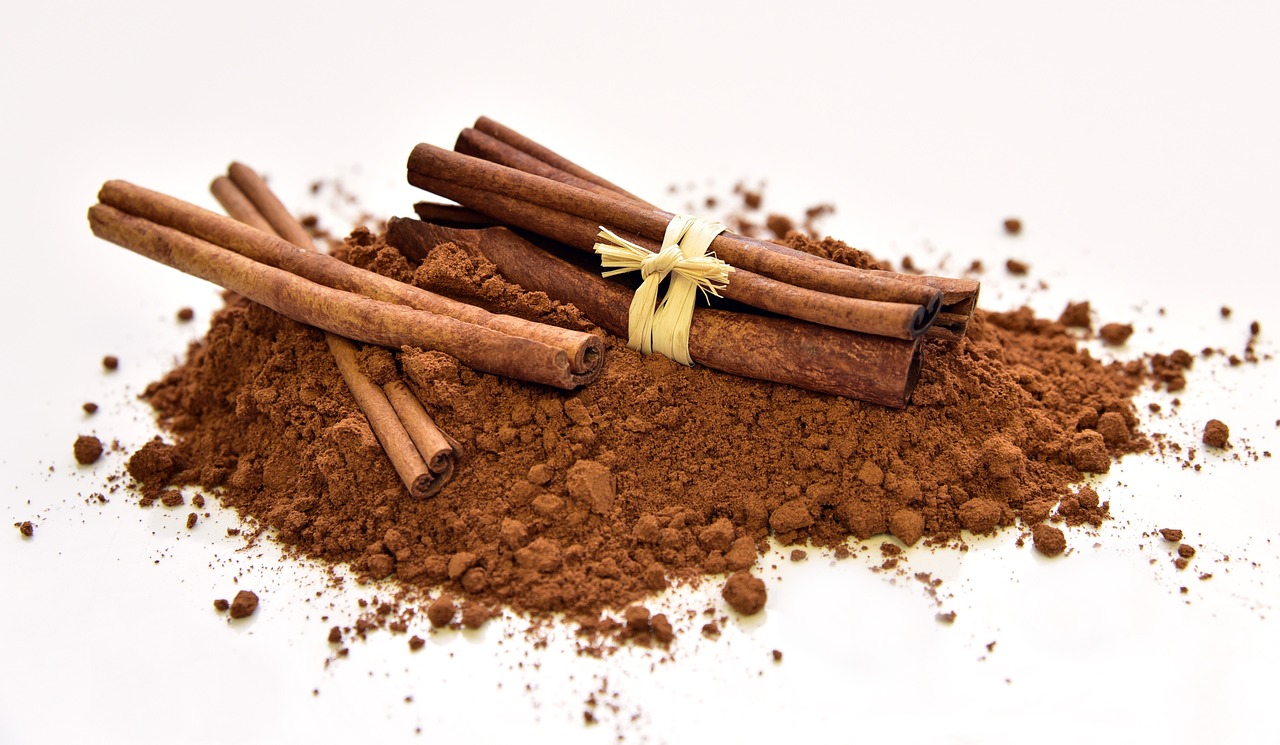
The Impact of Floral Scents
Floral scents have an extraordinary ability to uplift our spirits and evoke a range of emotions. Imagine walking through a blooming garden, where the sweet aromas of roses, lilies, and jasmine waft through the air. This delightful experience is not just a treat for the senses; it has profound effects on our mood and mental state. The chemistry behind these fragrances plays a vital role in how we feel. Each flower releases specific volatile compounds that interact with our olfactory receptors, triggering emotional responses that can enhance feelings of happiness or calmness.
Research has shown that floral scents, particularly those from roses and lavender, can significantly reduce stress and anxiety levels. For instance, the calming properties of lavender are well-documented; it's often used in aromatherapy to promote relaxation and better sleep. When inhaled, lavender oil can lower heart rate and blood pressure, creating a sense of tranquility. Similarly, the scent of roses has been linked to feelings of love and joy, making it a popular choice in various settings, from romantic dinners to self-care routines.
But how exactly do these scents work their magic? When floral fragrances are inhaled, they travel through the nasal cavity to the olfactory bulb, which processes the scent and sends signals to the brain's limbic system—the emotional center. This connection explains why a simple whiff of a flower can transport us back to cherished memories or evoke feelings of nostalgia. For example, the scent of jasmine might remind someone of a summer evening spent with friends, instantly lifting their mood.
Interestingly, cultural perceptions also influence how we respond to floral scents. In some cultures, certain flowers symbolize different emotions or states of mind. For instance, in many Western cultures, the rose is often associated with love and romance, while in Eastern cultures, it may symbolize purity and beauty. This cultural context can further enhance the emotional impact of floral fragrances, making them even more potent in shaping our mood.
To illustrate the impact of floral scents, consider the following table that summarizes some common floral fragrances and their associated emotional benefits:
| Floral Scent | Emotional Benefits |
|---|---|
| Rose | Love, Joy, Comfort |
| Lavender | Calmness, Relaxation, Stress Relief |
| Jasmine | Happiness, Euphoria, Confidence |
| Lily | Purity, Tranquility, Peace |
In conclusion, floral scents are more than just pleasing aromas; they are powerful tools for enhancing our mood and well-being. By incorporating these fragrances into our daily lives—whether through essential oils, candles, or fresh flowers—we can create an environment that promotes positivity and emotional balance. So, the next time you catch a whiff of a beautiful blossom, take a moment to appreciate its potential to uplift your spirit and transform your day.
- What are the most popular floral scents for mood enhancement? Popular floral scents include lavender, rose, jasmine, and lily, each offering unique emotional benefits.
- How can I use floral scents in my daily routine? You can use essential oils in diffusers, scented candles, or fresh flowers around your home to enjoy their mood-enhancing effects.
- Are there any side effects to using floral scents? Generally, floral scents are safe, but some individuals may be sensitive to strong fragrances. It’s always best to test a small amount first.

The Connection Between Memory and Scent
The relationship between scent and memory is nothing short of fascinating. Have you ever caught a whiff of a particular fragrance and been instantly transported back to a moment in your childhood? This phenomenon is not just a coincidence; it’s a powerful example of how our olfactory system is intricately linked to our memory centers in the brain. When we inhale a scent, the molecules travel through our nasal passages and bind to olfactory receptors, sending signals directly to the limbic system, which is responsible for emotions and memories. This direct pathway explains why certain smells can evoke vivid recollections and strong emotional reactions.
Research shows that scents can trigger memories with remarkable clarity, often more so than visual or auditory stimuli. For instance, the smell of freshly baked cookies might remind someone of their grandmother's kitchen, stirring feelings of warmth and nostalgia. This connection is so profound that it can even influence our current mood. When we encounter a scent linked to happy memories, it can uplift our spirits and create a sense of comfort. Conversely, unpleasant odors can bring back negative memories, leading to feelings of anxiety or sadness.
Interestingly, the types of scents that evoke memories can vary widely among individuals. Some people might find floral scents like jasmine or lavender calming and reminiscent of peaceful moments, while others might associate those same scents with allergies or discomfort. This subjectivity highlights the unique tapestry of personal experiences that shape our emotional responses to different fragrances.
To illustrate this connection further, let's look at a few common scents and their typical associations:
| Scent | Common Associations |
|---|---|
| Vanilla | Comfort, warmth, childhood memories |
| Pine | Nature, holidays, relaxation |
| Citrus | Freshness, energy, happiness |
| Lavender | Calmness, sleep, tranquility |
As we navigate through our daily lives, we constantly encounter various scents that can either enhance or detract from our mood. The ability of scent to evoke memories and emotions is a powerful tool that can be harnessed for better mental health and well-being. By consciously choosing scents that evoke positive memories, we can create an environment that fosters happiness and relaxation. Imagine walking into a room filled with the scent of your favorite essential oil, instantly uplifting your mood and helping you to feel more grounded. It’s like wrapping yourself in a warm, fragrant blanket!
In conclusion, the connection between memory and scent is a remarkable aspect of human experience that highlights the profound impact our sense of smell has on our emotions. By understanding this relationship, we can utilize fragrances to enhance our mood and well-being, making scent a powerful ally in our daily lives.
- Why do certain scents trigger specific memories? - Scents are processed in the brain's limbic system, which is closely linked to memory and emotions, making them powerful triggers for recollection.
- Can scents improve my mood? - Yes! Certain fragrances can evoke positive emotions and memories, helping to elevate your mood and reduce stress.
- Are there scents that can help with anxiety? - Absolutely! Scents like lavender and chamomile are known for their calming properties and can help alleviate feelings of anxiety.

Cultural Influences on Fragrance Preferences
When it comes to fragrance preferences, cultural influences play a significant role in shaping our choices and perceptions. Just like how food varies dramatically across different regions, so too do our olfactory experiences. For instance, in many Western cultures, fresh and fruity scents tend to dominate the fragrance market, often associated with cleanliness and vitality. On the other hand, Eastern cultures might lean towards more spicy and woody fragrances, which are often linked to warmth and comfort. This divergence illustrates how deeply ingrained cultural practices and traditions can influence what we find appealing.
Moreover, the significance of scents can vary widely between cultures. In some societies, certain aromas are tied to rituals, celebrations, or even spiritual practices. For example, in many Middle Eastern cultures, oud—a rich, woody fragrance—holds a special place in both personal and communal settings. It’s not just a scent; it's a symbol of hospitality and warmth. In contrast, Scandinavian countries might favor clean, crisp scents that reflect their natural surroundings, such as pine or fresh linen. This preference aligns with their cultural values of simplicity and minimalism.
Another fascinating aspect of cultural influences is how fragrances can evoke emotions and memories tied to specific experiences. For instance, the smell of jasmine might transport someone from India back to their childhood, where it was used in family gatherings and celebrations. In contrast, the scent of vanilla could evoke feelings of nostalgia for a person from a Western background, perhaps reminding them of baking cookies with a loved one. These connections highlight the profound impact that cultural context has on our emotional responses to different scents.
It’s also worth noting that fragrance preferences can change over time as cultures evolve and intermingle. The globalization of the fragrance industry has led to a blending of olfactory influences, creating unique hybrids that reflect a more interconnected world. For instance, you might find a perfume that combines the floral notes of a traditional Japanese scent with the rich spices favored in Middle Eastern fragrances. This fusion not only broadens our olfactory horizons but also fosters a deeper appreciation for the diverse cultural backgrounds that shape our fragrance experiences.
In conclusion, understanding the cultural influences on fragrance preferences enriches our appreciation of scents. It reminds us that fragrance is not merely about personal taste; it’s a tapestry woven from history, tradition, and shared experiences. So, the next time you spritz on your favorite scent, consider the cultural stories and meanings behind it. It’s a beautiful reminder of how interconnected we all are through the universal language of scent.
- How do cultural backgrounds influence fragrance preferences?
Cultural backgrounds shape our preferences through historical, social, and emotional associations with certain scents. For example, some cultures may prefer floral scents, while others might lean towards spices or woods based on traditional practices.
- Can fragrance preferences change over time?
Yes, fragrance preferences can change as cultures evolve and as people are exposed to different olfactory experiences. Globalization has also introduced new scents that may become popular across different cultures.
- What role does memory play in fragrance preferences?
Fragrance is closely tied to memory, as certain scents can evoke strong emotional responses and memories from the past. This connection can influence an individual's preference for specific fragrances.
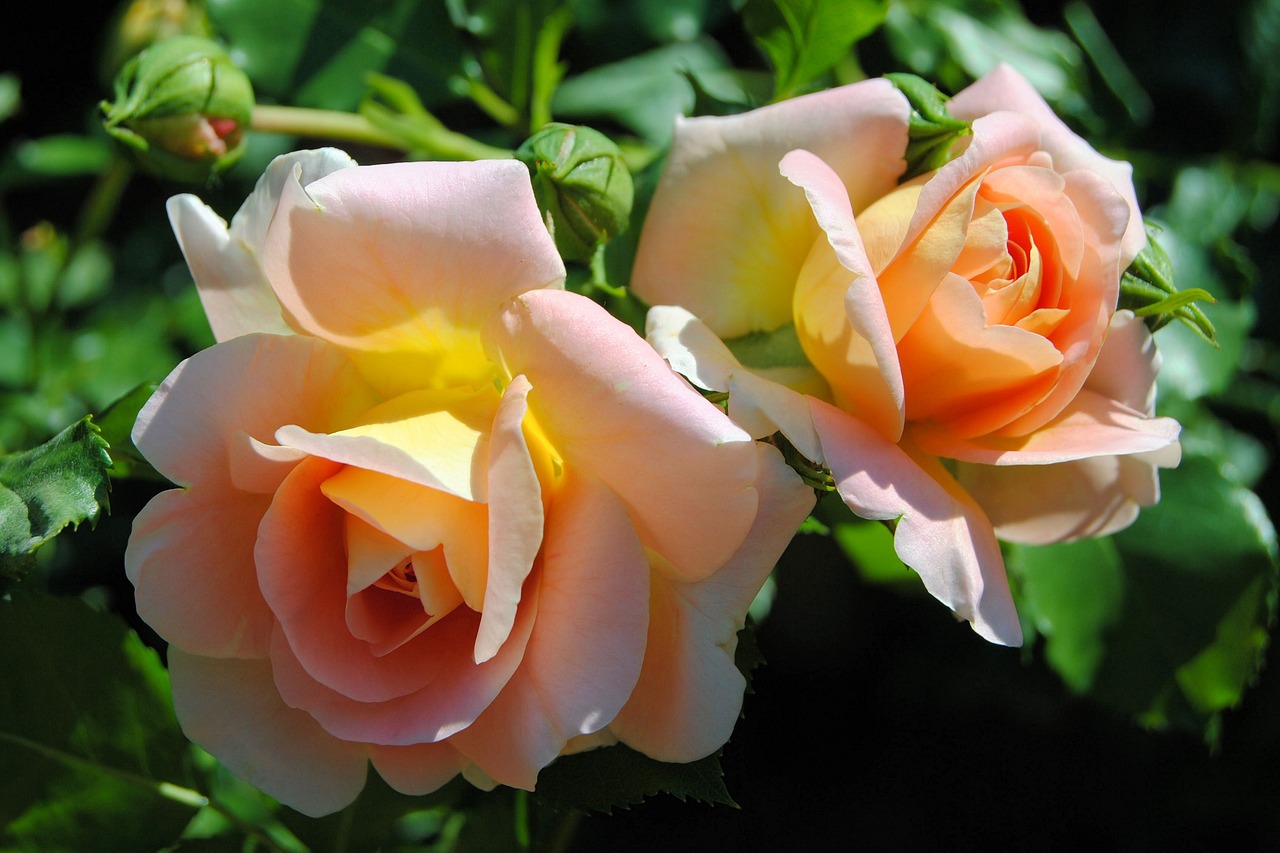
Seasonal Fragrance Trends
When the seasons change, so do our fragrance preferences. It’s almost like nature is giving us a cue to switch things up, and our senses respond in kind. Imagine walking through a sun-drenched field in summer, the air filled with the sweet scent of blooming flowers. In contrast, think about the cozy, woody aromas that wrap around you during the chilly winter months. Isn’t it fascinating how our emotional states can shift with the seasons, influenced by the scents we choose to surround ourselves with?
During spring, for instance, floral fragrances reign supreme. The vibrant notes of jasmine, peony, and cherry blossom evoke feelings of renewal and happiness. These scents can uplift our spirits, making us feel more alive and connected to the world around us. On the other hand, summer often calls for fresh, fruity fragrances that embody the essence of sunshine and carefree days. Citrus notes like lemon and grapefruit can invigorate your mood, transporting you to a tropical paradise.
As autumn approaches, we start to crave warmer, spicier scents. Think of pumpkin spice, cinnamon, and nutmeg. These fragrances not only warm our hearts but also evoke the nostalgia of cozy gatherings and festive celebrations. They create an atmosphere of comfort and togetherness, making us feel right at home. Winter, however, brings a different vibe altogether. The crisp air invites us to indulge in deeper, richer scents. Woodsy notes like cedar and sandalwood, combined with hints of vanilla or amber, can create a sense of warmth and security during the cold months.
Interestingly, the psychological effects of these seasonal fragrances are backed by science. A study found that certain scents can trigger emotional responses linked to memories associated with those times of the year. For example, the smell of freshly cut grass in spring can remind us of childhood playtime, while the scent of pine in winter might bring back memories of holiday traditions. This connection between scent and memory is powerful, influencing not just our mood but also our overall well-being.
In addition to personal preferences, cultural factors also play a significant role in how we perceive and utilize seasonal fragrances. For example, in some cultures, specific scents are used during particular seasons for rituals or celebrations. Understanding these cultural influences can further enhance our fragrance experience, making it more meaningful.
As we embrace the changing seasons, it’s essential to explore and experiment with different fragrances that resonate with our emotions and the atmosphere around us. Whether you’re drawn to the floral freshness of spring or the cozy warmth of winter, there’s a scent out there that can elevate your mood and enhance your seasonal experience.
- How do seasonal fragrances affect mood?
Seasonal fragrances can evoke specific emotions and memories associated with that time of year, influencing our overall mood and well-being. - What are some popular spring fragrances?
Popular spring fragrances often include floral notes such as jasmine, peony, and cherry blossom, which evoke feelings of renewal and happiness. - Can fragrance preferences vary by culture?
Yes, cultural background can significantly influence fragrance preferences, with different cultures associating specific scents with rituals, celebrations, or emotional expressions. - How can I choose the right fragrance for each season?
Consider the emotions you want to evoke and the memories you associate with certain scents. Experimenting with different fragrances can help you find the perfect match for each season.
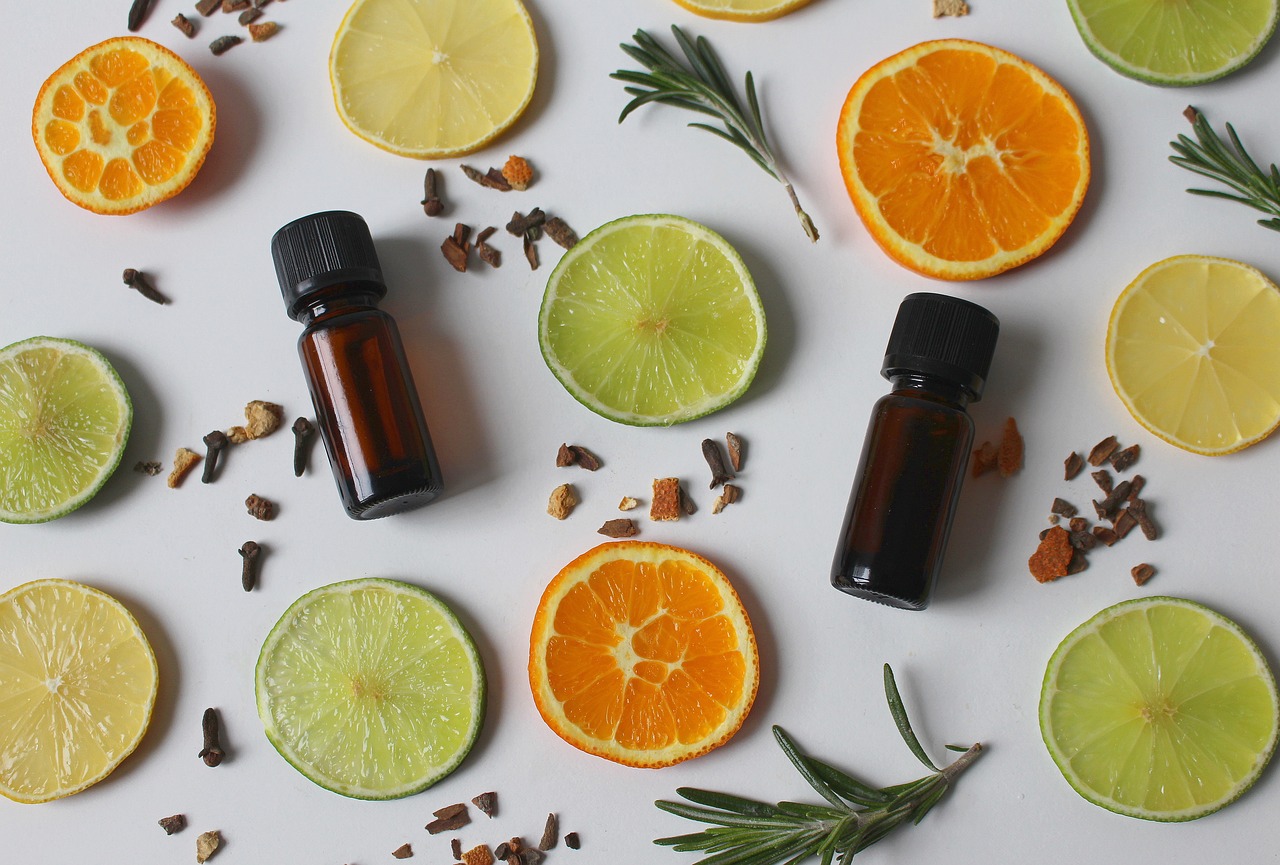
Personalizing Your Fragrance Experience
Imagine walking into a room and being instantly transported to a serene garden filled with blooming flowers, or perhaps a cozy cabin in the woods. This is the magic of . The scents we choose to surround ourselves with can significantly influence our mood, emotions, and even our productivity. But how do you find the perfect scent that resonates with your unique preferences and emotional needs? Let’s dive into the world of fragrances and explore how you can tailor your olfactory experience.
First and foremost, it's essential to understand that fragrance is deeply personal. What smells divine to one person might be overwhelming to another. This is where self-discovery comes into play. Start by exploring various fragrance families: floral, citrus, woody, oriental, and fresh. Each family carries its own set of characteristics and emotional associations. For instance, citrus scents like lemon and orange are often invigorating and energizing, while floral scents like jasmine and rose can evoke feelings of calm and romance.
To make the personalization process easier, consider creating a fragrance profile for yourself. Ask yourself a few questions:
- What emotions do I want to evoke with my fragrance?
- Do I prefer light, airy scents or deep, rich aromas?
- Are there any specific memories or experiences I want to capture in my fragrance?
Once you have a clearer understanding of your preferences, it’s time to experiment! Visit a local perfume shop or use online fragrance discovery platforms where you can sample different scents. Pay attention to how each fragrance makes you feel. Do you feel more relaxed, energized, or nostalgic? Keep in mind that fragrances can smell different on your skin compared to how they smell in the bottle, due to body chemistry. This is why trying before buying is crucial.
Another exciting way to personalize your fragrance experience is by blending scents. This can be a fun and creative process. You might find that combining a fresh citrus scent with a warm vanilla base creates a unique aroma that perfectly encapsulates your personality. Many brands offer fragrance layering options, allowing you to mix and match to your heart's content. Just like a painter mixes colors to create a masterpiece, you can create a scent that is uniquely yours.
Moreover, consider the context in which you’ll be wearing your fragrance. Different settings may call for different scents. For example, a light, floral fragrance might be perfect for a spring day at the park, while a deeper, more intense scent could be ideal for an evening out. By aligning your fragrance choices with your activities and environments, you can enhance your overall experience and mood.
Lastly, don't forget about the power of memory when it comes to scents. Certain fragrances can remind you of specific moments in your life, whether it’s the smell of fresh-cut grass on a summer day or the comforting aroma of your grandmother's kitchen. By choosing fragrances that evoke positive memories, you can create a sense of comfort and happiness in your daily life.
In conclusion, personalizing your fragrance experience is not just about smelling good; it's about enhancing your mood, evoking memories, and expressing who you are. By exploring different scent families, creating a fragrance profile, experimenting with blends, and considering the context of your fragrance use, you can find the perfect scent that resonates with your individual preferences. So, go ahead and embark on this aromatic journey—your perfect fragrance awaits!
Q1: How do I know which fragrance is right for me?
A1: Start by exploring different fragrance families and pay attention to how each scent makes you feel. Testing fragrances on your skin and considering your emotional responses can help you find the right one.
Q2: Can I blend my own fragrances?
A2: Absolutely! Many brands encourage fragrance layering, allowing you to mix different scents to create a unique aroma that reflects your personality.
Q3: How does body chemistry affect fragrance?
A3: Your skin's pH, moisture level, and even diet can influence how a fragrance smells on you compared to how it smells in the bottle. It’s essential to test fragrances on your skin to see how they develop over time.
Q4: Are there any fragrances that can help with stress relief?
A4: Yes! Scents like lavender, chamomile, and bergamot are known for their calming properties and can help reduce stress and anxiety.
Q5: How often should I change my fragrance?
A5: There are no hard and fast rules, but many people like to switch their fragrances with the seasons or based on their mood and activities.

The Future of Fragrance Technology
The world of fragrance is evolving at a breakneck pace, with technology playing a crucial role in how we experience scents. Imagine walking into a room and being greeted not just by the scent of fresh flowers but by a carefully curated olfactory experience that changes with your mood. This is no longer a distant fantasy; it is becoming a reality thanks to advancements in fragrance technology. With innovations such as smart diffusers and wearable scent devices, we are on the verge of a new era where scents can be tailored to enhance our emotional states and overall well-being.
One of the most exciting developments is the integration of artificial intelligence in scent creation. AI algorithms can analyze vast amounts of data to predict which scents will resonate with individuals based on their preferences, moods, and even current emotional states. This means that fragrance companies can create personalized scents that are not only unique but also have the potential to significantly uplift your mood. Imagine a fragrance that adapts to your stress levels, providing calming notes when you’re anxious and invigorating scents when you need a boost.
Moreover, the rise of virtual reality (VR) is set to revolutionize how we experience fragrances. Picture this: you’re in a VR environment that simulates a serene beach. With the right scent technology, the air can be infused with the smell of saltwater and coconut, enhancing the immersive experience. This multisensory approach can lead to greater emotional engagement and a deeper connection to the environment we are simulating. The potential applications for relaxation, therapy, and even entertainment are limitless.
But it doesn't stop there. The future of fragrance technology also includes scent delivery systems that are more sophisticated than ever. These systems can be programmed to release specific scents at designated times or in response to certain triggers. For instance, a smart home fragrance system could release a calming lavender scent in the evening to help you wind down or a refreshing citrus scent in the morning to energize your day. This level of customization allows individuals to create an atmosphere that aligns perfectly with their emotional needs.
As we look forward, it's essential to consider the impact of these advancements on our well-being. The potential for scents to influence our mood and mental health is immense. However, with great power comes great responsibility. Ethical considerations around scent production and the psychological effects of personalized fragrances must be addressed. After all, while technology can enhance our experiences, it should never replace the natural connection we have with scents and the memories they evoke.
In conclusion, the future of fragrance technology is not just about creating pleasant aromas; it’s about harnessing the power of scent to enhance our lives. As we embrace these innovations, we can look forward to a world where fragrances are not merely accessories but integral components of our emotional well-being. So, keep your senses open and prepare for a fragrant revolution that promises to elevate our mood and enrich our experiences in ways we’ve only begun to imagine.
- What is fragrance technology? Fragrance technology refers to the advancements in how scents are created, delivered, and experienced, often utilizing AI, VR, and smart devices to personalize olfactory experiences.
- How can fragrances affect mood? Scents can trigger emotional responses and memories, influencing our mood positively or negatively based on personal associations with specific fragrances.
- What are smart diffusers? Smart diffusers are devices that can be programmed to release specific scents at certain times or in response to environmental cues, enhancing mood and atmosphere.
- Can AI create personalized fragrances? Yes, AI can analyze data to create customized fragrances that align with individual preferences and emotional states.
Frequently Asked Questions
- How do fragrances affect our mood?
Fragrances can significantly influence our mood by triggering emotional responses through our olfactory system. Different scents can evoke feelings of happiness, calmness, or even nostalgia, creating a powerful connection between smell and emotion.
- What are essential oils and how do they work?
Essential oils are concentrated extracts from plants that carry distinctive scents and therapeutic properties. When inhaled or applied, these oils can stimulate the brain's limbic system, which is responsible for emotions, thereby promoting relaxation, energy, or even focus.
- Can aromatherapy really help with stress and anxiety?
Absolutely! Aromatherapy leverages the power of essential oils to create a calming environment. Scents like lavender and chamomile are known for their stress-relieving properties, helping to reduce anxiety and promote a sense of well-being.
- Why do certain scents bring back memories?
Scent has a unique ability to trigger memories because it is closely linked to the brain's memory center. When we smell a fragrance associated with a past experience, it can evoke vivid recollections and emotions tied to that moment, enhancing our current mood.
- How do cultural backgrounds influence fragrance preferences?
Cultural backgrounds shape our fragrance preferences by influencing how we perceive and associate scents with emotions. For example, certain flowers or spices may be revered in one culture while being less significant in another, leading to diverse emotional responses.
- Are there seasonal fragrances that can affect mood?
Yes! Seasonal fragrances often align with our emotional states. For instance, fresh, floral scents in spring can uplift our spirits, while warm, spicy scents in winter can evoke feelings of comfort and coziness, influencing our mood throughout the year.
- How can I personalize my fragrance experience?
Personalizing your fragrance experience involves selecting scents that resonate with your individual preferences and emotional needs. Experiment with different fragrances to find what makes you feel good, whether it’s a fresh citrus scent for energy or a soothing lavender for relaxation.
- What advancements are being made in fragrance technology?
Advancements in fragrance technology include innovative scent delivery systems that enhance how we experience fragrances. These technologies aim to create more immersive and long-lasting scent experiences, potentially improving mood and emotional well-being in new ways.


